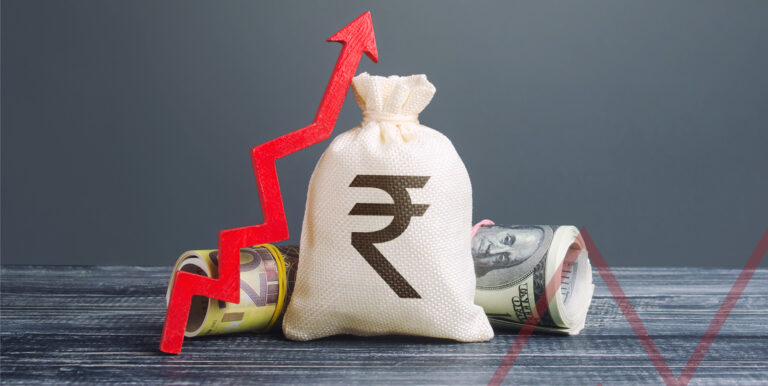Asian stocks plummet 10%, triggering worldwide financial turmoil as new US trade policies threaten global recession
Asian Financial Markets Hit Hardest by US Trade Policy Shift
Asian financial markets suffered catastrophic losses Monday as President Donald Trump’s sweeping new tariff policies sent shockwaves through the global economy. Investors fled risk assets amid growing fears of a prolonged international trade war and potential global recession, creating what analysts are calling the most severe single-day market collapse since the 2008 financial crisis.
The MSCI Asia Pacific Index plummeted 7.9% intraday, marking its steepest decline in over 16 years. Hong Kong’s Hang Seng Index crashed 10.7%, while Taiwan’s Taiex tumbled nearly 10%. Japan’s benchmark Nikkei 225 sank almost 9% before recovering slightly to close the morning session down 6.5% at 31,591.84.
Banking and Tech Sectors Lead Market Collapse
All 225 Nikkei constituents traded in negative territory, with banking and semiconductor stocks bearing the brunt of investor panic:
- The Topix bank index plunged 17.3%, its steepest drop in decades
- Major financial institutions like Resona Holdings, Mizuho, and Nomura posted double-digit percentage losses
- Key semiconductor firms including Tokyo Electron, Sumco, and Renesas, faced aggressive selling pressure
Global Trade War Fears Intensify as Tariffs Reach 50%
Markets across Asia reacted violently to uncertainties surrounding Trump’s tariffs, some reportedly reaching up to 50% on select categories. With global supply chains under immediate threat, investors rapidly shifted to safe-haven assets. The offshore Chinese yuan weakened 0.3%, while U.S. Treasuries rallied and oil prices tumbled over 4% on demand concerns.
India’s Economy Faces Export Crisis Despite Government Optimism
India’s Nifty 50 and BSE Sensex each plummeted more than 4%, heading for their worst daily performance in 10 months. Despite the market turmoil, Indian officials maintain their 2025-26 GDP growth projections of 6.3% to 6.8%, assuming oil prices remain below $70 per barrel.
However, private forecasters paint a darker picture:
- Goldman Sachs has revised India’s growth forecast down to 6.1%
- India’s critical diamond export industry, which sends over a third of its production to the US, now faces severe disruption
- Tens of thousands of Indian jobs may be at risk from export contraction
Worldwide Market Contagion Spreads to Europe and the US
The financial contagion quickly spread westward:
- London’s FTSE 100 plunged 488 points (6%) to 7,566, its lowest level since February 2024
- German 2-year bond yields fell six basis points to 1.80% as ECB intervention expectations grew
- Wall Street technology stocks entered bear market territory, facing combined threats of cost inflation and restricted global demand
Trump Defends “Tariff Medicine” Despite Economic Pain
President Trump characterized the controversial tariffs as necessary “medicine” to correct long-standing trade imbalances. He insisted the short-term market pain would yield long-term economic benefits for the United States. The tariff package includes:
- A blanket 10% duty on most imports
- Additional country-specific tariffs set to take effect on April 9
- Some nations, including India and Taiwan, are negotiating for potential exemptions
Central Banks Scramble to Respond as Recession Risk Soars
Global central banks are preparing emergency responses:
- The Reserve Bank of New Zealand is widely expected to cut interest rates this week
- Traders are now pricing in a US Federal Reserve rate cut as early as June
- Recession probability estimates have surged to 60%, according to updated economic forecasts
Economic impact projections have deteriorated rapidly:
- Goldman Sachs expects China’s GDP to contract by at least 0.7 percentage points this year due to anticipated retaliation
- JPMorgan forecasts US GDP falling by 0.3% under current tariff pressures
$5 Trillion in Global Equity Value Erased
According to Reuters, the market turmoil has erased approximately $5 trillion in global equity value over just a few trading sessions. Investor flight from risk assets accelerated over the weekend with no clear resolution in sight.
“This is the most volatile market I’ve experienced since the COVID-19 pandemic,” Ken Cheung, chief currency strategist at Mizuho Bank, told Bloomberg.
Market observers are drawing parallels to previous global financial shocks, including the 2015 China devaluation, the 2020 pandemic crash, and the 2008 financial crisis, as central banks and finance ministers from major economies prepare for emergency consultations this week.










